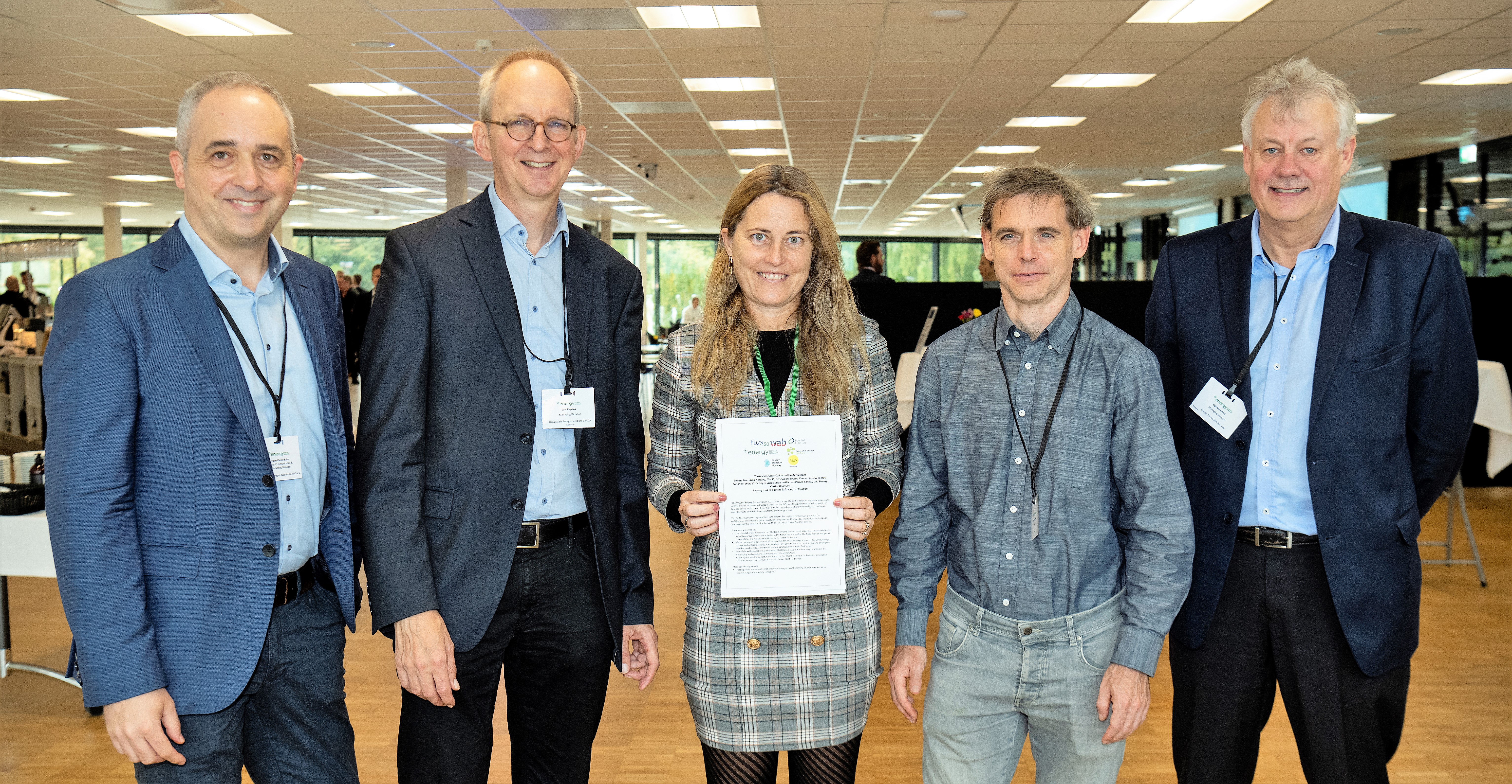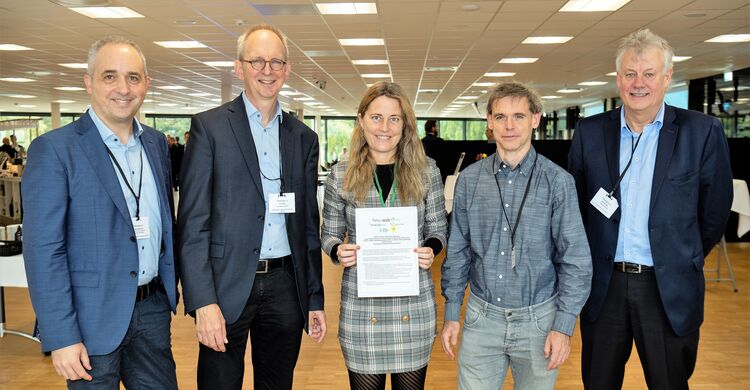Wind energy, energy islands, Power-to-X, carbon capture and storage, sector coupling...
There is a wide potential for collaborations about technological innovation in the North Sea. That was emphasised when seven European clusters from Germany, The Netherlands, Belgium, Norway, and Denmark singed a joint manifesto in Esbjerg, Denmark on October 6.
All seven clusters represent large enterprises, small and medium sized companies, start-ups, and research institutions - all working with innovation around the North Sea.
The manifesto was signed as part of the Energy Innovation Matchmaking in Esbjerg - a B2B matchmaking event organised by Energy Cluster Denmark and part of the global association World Energy Cities Partnership's annual meeting in Esbjerg.
The clusters that signed the manifesto are Energy Transition Norway, Flux50, Renewable Energy Hamburg, New Energy Coalition, Wind & Hydrogen Association WAB e.V., Blauwe Cluster, and Energy Cluster Denmark.
Statements from the clusters:
Frederik Loeckx, Managing Director, flux50:
"Connecting the offshore wind farms through energy islands can only be realised in a coordinated manner. Clusters are best positioned to bring together the required expertise in order to accelerate the development of these islands."
Heike Winkler, Managing Director, WAB e.V.
"The expansion of offshore wind and green hydrogen in the North Sea offers a great opportunity for employment and value creation. To take advantage of this opportunity in Germany, we need a major training and qualification offensive supported by our government. We also need to ensure that the carbon footprint of offshore wind projects is a criterion alongside other sustainability criteria in all offshore wind auctions. Offshore wind is of systemic importance - the price cannot be a priority when it comes to climate protection. A key step is also to strengthen the maritime industry and the shipyards as well as the port infrastructure. We need to work together across borders to bridge some of these bottlenecks."
Egil Aanestad, Managing Director, Energy Transition Norway
"For the past 50 years, the North Sea has been a power plant with production of enormous recourses though the oil and gas industry. Time has come to use our competence and infrastructure to produce renewable energy. With the production of wind, waves, hydrogen, and potentially geothermal energy, we will turn the North Sea into green power plant. The key to success in our attempts to accelerate the energy transition process in accordance with the Esbjerg declaration will be our ability to connect the North Sea countries through a cluster collaboration platform."
Jan Rispens, Managing Director, Renewable Energy Hamburg
"To address the very high targets for offshore wind in the North Sea, the regional and national clusters are well positioned and trusted by their members to develop the European value chain. We are happy to participate in that process."
Marc Nuytemans, CEO, Blue Cluster
"Never has there been a better time and a greater need for cooperation on renewable energy in the North Sea. At the Blue Cluster we believe that our common future lies in, at and on sea. This collaborative effort of 7 clusters will clearly establish the potential of our enhanced value chain. Today, more than ever, collaboration is key in developing and securing the energy system of the future. Following up on the Esbjerg Declaration by government leaders it is now up to the EU cluster organisations to put their commitment into concrete actions. We are ready to move forward."
Marieke Abbink, CEO New Energy Coalition
"Today, more than ever, collaboration is key in developing and securing the energy system of the future. Following up on the Esbjerg Declaration by government leaders it is now up to the EU cluster organisations to put their commitment into concrete actions. We are ready to move forward."
Glenda Napier, CEO, Energy Cluster Denmark
The joint manifesto will support the Esbjerg-declaration from 2022, that target at least 65 GW offshore wind in 2030 and 150 GW capacity in 2050. Moreover, the declaration sets ambitions for energy islands, production of green hydrogen and more, and the future goals demand innovation, technological development and EU funding to companies and researchers within the energy clusters of Europe. If we collaborate across borders, we will have a stronger position towards common, European innovation."
Contact
Jonas Larsen, Head of Communications and Events, Energy Cluster Denmark: +4521224304 / jnl @ energycluster.dk

